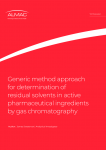Sanofi abandons phase 2 trial of Denali’s multiple sclerosis candidate

The K2 trial tested oditrasertib’s safety and ability to reduce the blood levels of neurofilament light chain, a biomarker of neuronal damage in multiple sclerosis. However, the trial failed to meet its primary and undisclosed key secondary endpoints, according to a filing.
Multiple sclerosis is a degenerative and progressive disorder where the immune system attacks the insulation around nerve cells, leading to the death of the cells and to increasing disability in people with the condition, which number around 2.8 million.
Oditrasertib is designed to block a protein called receptor-interacting protein kinase 1 (RIPK1), which is involved in cell death. Blocking RIPK1 could make nerve cells more resistant to the pathology and slow down the disease.
Denali obtained oditrasertib in 2016 when it took over the previous developer Incro Pharmaceuticals. Sanofi then got in on the action when it inked a $1 billion strategic collaboration with Denali in 2018 to develop candidates for the treatment of immunological and neurological conditions.
Numerous setbacks
The partnership has faced numerous obstacles in the last few years. Another of the RIPK1 inhibitors in the deal flopped in a phase 1b trial for the treatment of Alzheimer’s disease and amyotrophic lateral sclerosis (ALS) in 2020, leading the partners to focus on oditrasertib. In February this year, however, oditrasertib failed in a phase 2 trial for the treatment of ALS and Sanofi discontinued the trial.
Another RIPK1 inhibitor in the sights of the partners is eclitasertib, which cannot penetrate the central nervous system and is in phase 2 development for the treatment of ulcerative colitis.
Denali Therapeutics raised $500 million in a private placement in February this year and its main candidate, an enzyme replacement therapy to treat the rare disease mucopolysaccharidosis type II, is in a phase 2/3 trial set to complete enrollment this year.
The growing prevalence of multiple sclerosis is set to drive the global market for treatments, which was worth $21.3 billion in 2023 and is projected to grow by 7.9% to $38.9 billion by 2032.
Getting a RIPK1 blocker to the market is proving difficult for many players, with a candidate developed by GlaxoSmithKline showing no efficacy signs in clinical results in patients with ulcerative colitis published in 2021. Some of the most advanced RIPK1 contenders include phase 1-stage programs by China’s GenFleet Therapeutics, Roche’s U.S. company Genentech, and a compound developed by Eli Lilly and Rigel Pharmaceuticals.



















